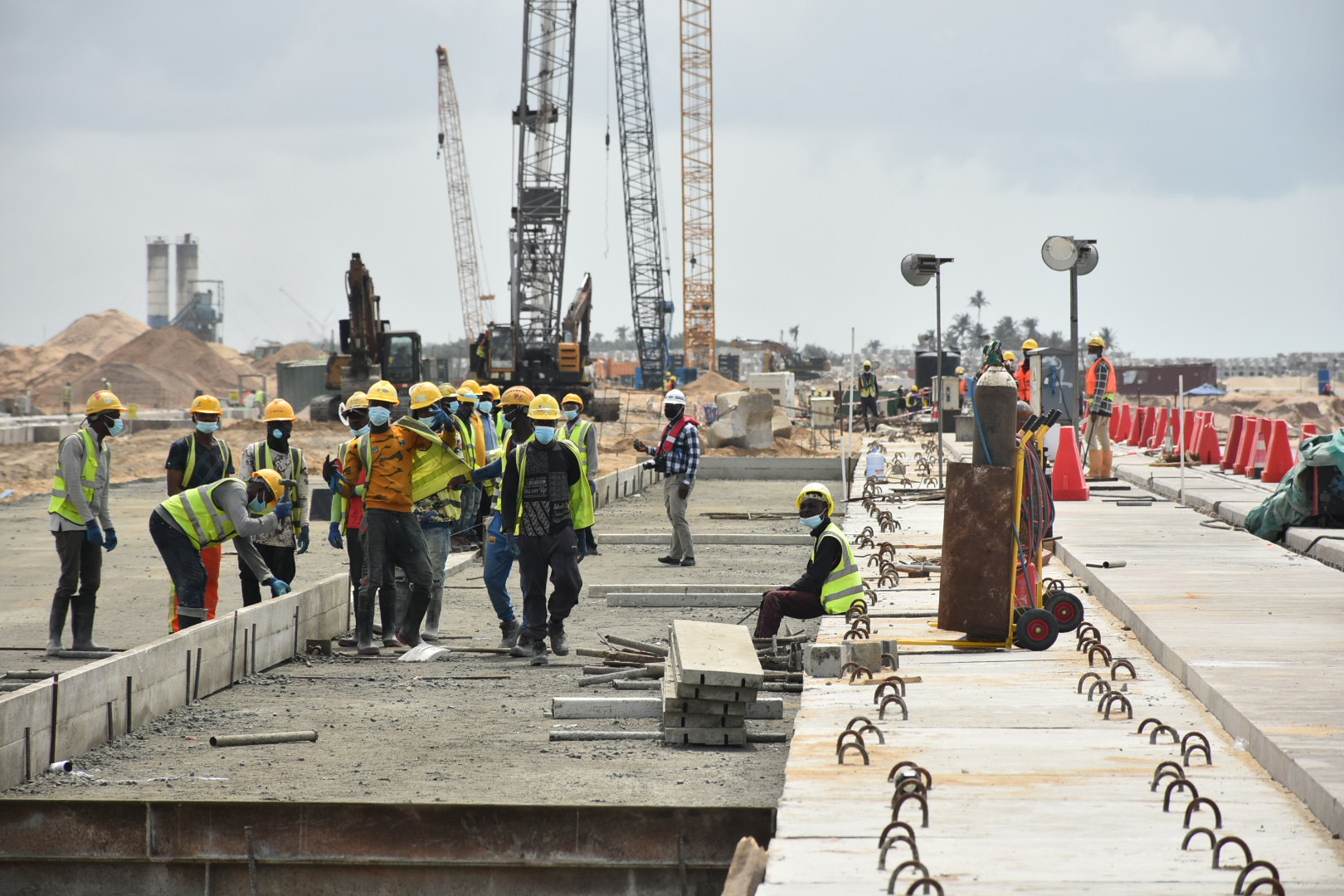Oil & Energy
FG Blames Waning Investment, Insecurity For Declining Crude

The Federal Government has said absence of long-term investment in the oil and gas sector and insecurity should be blamed for Nigeria’s current low crude oil production.
A statement by the Senior Adviser, Media and Communications, Horatius Egua, quoted the Minister of State, Petroleum Resources, Timipre Sylva, as having made the comment while speaking at a ministerial plenary, at the ongoing Ceraweek, in Houston, Texas.
Specifically, Sylva stated that this development was responsible for the inability of Nigeria to meet the Organisation of Petroleum Exporting Countries (OPEC) quota in recent times.
Although Nigeria’s OPEC production quota is pegged at 1.8 million bpd, in the last few years, the country has struggled between 1.3 and 1.4 million bpd.
Sylva insisted that the speed with which International Oil Companies (IOCs) and other investors were withdrawing investments in hydrocarbon exploitation had further contributed significantly to Nigeria’s underperformance.
“The rate at which investments was taken away was too fast. Lack of investment in the oil and gas sector contributed to Nigeria’s inability to meet OPEC quota. We are not able to get the needed investments to develop the sector and that affected us,” he stated.
He also cited security challenges as another major factor that contributed to the lack of significant growth of the sector in the country and added that the drive towards renewable energy by climate enthusiasts had discouraged funding for the sector.
Sylva, however, called for a change of attitude, stressing that in decades to come hydrocarbon will continue to play a central role in meeting the energy needs of the world.
The Minister said although Nigeria was in full support of the energy transition, the country and the African continent should be allowed to develop at its own pace to be able to meet the energy needs of the over 600 million people who have no access to any form of power in Africa.
“There are about 600 million people in Africa without access to power and of that number the majority live in Nigeria. And of the over 900 million people without access to power in the world, the majority live in Africa.
“So how do we provide access to power for these people if you say we should not produce gas? We believe that gas is the way to go.
“We believe that gas is the way forward and the one access to power. For the energy transition programme to be taken seriously we need to have an inclusive energy transition programme,” he argued.
According to him, while Africa believes in the energy transition, it has its peculiar problems.
“We are saying that our energy transition should be focused on gas to bridge the energy gap. This is what we have been saying. We need a just and equitable energy transition programme,” Sylva further stated.
According to him, Nigeria was also not in any way against the energy transition programme, but urged promoters of renewable energy as the only path to energy transition to give the poorer countries of the world the opportunity to achieve energy sufficiency before doing away with fossil fuel.
“As Africans we are saying that we must be allowed to transit through gas. We cannot achieve one energy base load through renewable alone. The rest of the world must listen to us. We are happy that our point of view is being taken,” he stressed.
Oil & Energy
FG Woos IOCs On Energy Growth
The Federal Government has expressed optimism in attracting more investments by International Oil Companies (IOCs) into Nigeria to foster growth and sustainability in the energy sector.
This is as some IOCs, particularly Shell and TotalEnergies, had announced plans to divest some of their assets from the country.
Recall that Shell in January, 2024 had said it would sell the Shell Petroleum Development Company of Nigeria Limited (SPDC) to Renaissance.
According to the Minister of State for Petroleum Resources (Oil), Heineken Lokpobiri, increasing investments by IOCs as well as boosting crude production to enhancing Nigeria’s position as a leading player in the global energy market, are the key objectives of the Government.
Lokpobiri emphasized the Ministry’s willingness to collaborate with State Governments, particularly Bayelsa State, in advancing energy sector transformation efforts.
The Minister, who stressed the importance of cooperation in achieving shared goals said, “we are open to partnerships with Bayelsa State Government for mutual progress”.
In response to Governor Douye Diri’s appeal for Ministry intervention in restoring the Atala Oil Field belonging to Bayelsa State, the Minister assured prompt attention to the matter.
He said, “We will look into the issue promptly and ensure fairness and equity in addressing state concerns”.
Lokpobiri explained that the Bayelsa State Governor, Douyi Diri’s visit reaffirmed the commitment of both the Federal and State Government’s readiness to work together towards a sustainable, inclusive, and prosperous energy future for Nigeria.
While speaking, Governor Diri commended the Minister for his remarkable performance in revitalisng the nation’s energy sector.
Oil & Energy
Your Investment Is Safe, FG Tells Investors In Gas
The Federal Government has assured investors in the nation’s gas sector of the security and safety of their investments.
Minister of State for Petroleum Resources (Gas), Ekperikpe Ekpo, gave the assurance while hosting top officials of Shanghai Huayi Energy Chemical Company Group of China (HUAYI) and China Road and Bridge Corporation, who are strategic investors in Brass Methanol and Gas Hub Project in Bayelsa State.
The Minister in a statement stressed that Nigeria was open for investments and investors, insisting that present and prospective foreign investors have no need to entertain fear on the safety of their investment.
Describing the Brass project as one critical project of the President Bola Tinubu-led administration, Ekpo said.
“The Federal Government is committed to developing Nigeria’s gas reserves through projects such as the Brass Methanol project, which presents an opportunity for the diversification of Nigeria’s economy.
“It is for this and other reasons that the project has been accorded the significant concessions (or support) that it enjoys from the government.
“Let me, therefore, assure you of the strong commitment of our government to the security and safety of yours and other investments as we have continually done for similar Chinese investments in Nigeria through the years”, he added.
Ekpo further tasked investors and contractors working on the project to double their efforts, saying, “I want to see this project running for the good of Nigeria and its investors”.
Earlier in his speech, Leader of the Chinese delegation, Mr Zheng Bi Jun, said the visit to the country was to carry out feasibility studies for investments in methanol projects.
On his part, the Managing Director of Brass Fertiliser and Petrochemical Ltd, Mr Ben Okoye, expressed optimism in partnering with genuine investors on the project.
Oil & Energy
Oil Prices Record Second Monthly Gain
Crude oil prices recently logged their second monthly gain in a row as OPEC+ extended their supply curb deal until the end of Q2 2024.
The gains have been considerable, with WTI adding about $7 per barrel over the month of February.
Yet a lot of analysts remain bearish about the commodity’s prospects. In fact, they believe that there is enough oil supply globally to keep Brent around $81 this year and WTI at some $76.50, according to a Reuters poll.
Yet, like last year in U.S. shale showed, there is always the possibility of a major surprise.
According to the respondents in that poll, what’s keeping prices tame is, first, the fact that the Red Sea crisis has not yet affected oil shipments in the region, thanks to alternative routes.
The second reason cited by the analysts is OPEC+ spare capacity, which has increased, thanks to the cuts.
“Spare capacity has reached a multi-year high, which will keep overall market sentiment under pressure over the coming months”, senior analyst, Florian Grunberger, told Reuters.
The perception of ample spare capacity is definitely one factor keeping traders and analysts bearish as they assume this capacity would be put into operation as soon as the market needs it. This may well be an incorrect assumption.
Saudi Arabia and OPEC have given multiple signs that they would only release more production if prices are to their liking, and if cuts are getting extended, then current prices are not to OPEC’s liking yet.
There is more, too. The Saudis, which are cutting the most and have the greatest spare capacity at around 3 million barrels daily right now, are acutely aware that the moment they release additional supply, prices will plunge.
Therefore, the chance of Saudi cuts being reversed anytime soon is pretty slim.
Then there is the U.S. oil production factor. Last year, analysts expected modest output additions from the shale patch because the rig count remained consistently lower than what it was during the strongest shale boom years.
That assumption proved wrong as drillers made substantial gains in well productivity that pushed total production to yet another record.
Perhaps a bit oddly, analysts are once again making a bold assumption for this year: that the productivity gains will continue at the same rate this year as well.
The Energy Information Administration disagrees. In its latest Short-Term Energy Outlook, the authority estimated that U.S. oil output had reached a record high of 13.3 million barrels daily that in January fell to 12.6 million bpd due to harsh winter weather.
For the rest of the year, however, the EIA has forecast a production level remaining around the December record, which will only be broken in February 2025.
Oil demand, meanwhile, will be growing. Wood Mackenzie recently predicted 2024 demand growth at 1.9 million barrels daily.
OPEC sees this year’s demand growth at 2.25 million barrels daily. The IEA is, as usual, the most modest in its expectations, seeing 2024 demand for oil grow by 1.2 million bpd.
With OPEC+ keeping a lid on production and U.S. production remaining largely flat on 2023, if the EIA is correct, a tightening of the supply situation is only a matter of time. Indeed, some are predicting that already.
Natural resource-focused investors Goehring and Rozencwajg recently released their latest market outlook, in which they warned that the oil market may already be in a structural deficit, to manifest later this year.
They also noted a change in the methodology that the EIA uses to estimate oil production, which may well have led to a serious overestimation of production growth.
The discrepancy between actual and reported production, Goehring and Rozencwajg said, could be so significant that the EIA may be estimating growth where there’s a production decline.
So, on the one hand, some pretty important assumptions are being made about demand, namely, that it will grow more slowly this year than it did last year.
This assumption is based on another one, by the way, and this is the assumption that EV sales will rise as strongly as they did last year, when they failed to make a dent in oil demand growth, and kill some oil demand.
On the other hand, there is the assumption that U.S. drillers will keep drilling like they did last year. What would motivate such a development is unclear, besides the expectation that Europe will take in even more U.S. crude this year than it already is.
This is a much safer assumption than the one about demand, by the way. And yet, there are indications from the U.S. oil industry that there will be no pumping at will this year. There will be more production discipline.
Predicting oil prices accurately, even over the shortest of periods, is as safe as flipping a coin. With the number of variables at play at any moment, accurate predictions are usually little more than a fluke, especially when perceptions play such an outsized role in price movements.
One thing is for sure, though. There may be surprises this year in oil.
lrina Slav
Slav writes for Oilprice.com.
-
Business1 day ago
Agency Partners Foreign Varsity On Climate-Smart Agriculture Advancement
-

 Nation1 day ago
Nation1 day agoNUJ backs proposed strike by Lagos-owned media workers
-

 Niger Delta1 day ago
Niger Delta1 day agoFouchee Celebrates Asari’s Recognition
-
Niger Delta1 day ago
NDDC Boss Thanks God For Transformation … Promises More Infrastructural Projects
-
Business1 day ago
NACCIMA Rep Urges Farmers To Exploit Hybrid Oil Palm Seedlings
-
News1 day ago
4 Professors, 2 SANs Unveil Book On FUBARAISM …Commend Rivers Gov’s Dev Strides
-

 Politics23 hours ago
Politics23 hours agoNASS Sets Date For 2025 Budget Passage
-

 News1 day ago
News1 day agoNothing’ll Stop Governance In Rivers, Fubara Assures …Says We Won’t Allow Anyone Take State For A Ride

